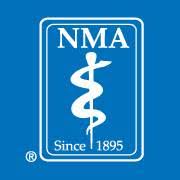
Editor's Note The Perioperative Nutrition Screen (PONS) identifies patients at greater risk of complications following pancreatic cancer surgery, according to a retrospective analysis published August 27 by Research Square. The study found that patients flagged for nutrition risk by PONS experienced longer hospital stays, higher complication rates, and were more…

Editor's Note NDM-producing carbapenem-resistant Enterobacterales are climbing fast and straining treatment choices, according to a September 23 release from the Centers for Disease Control and Prevention (CDC) and published in the Annals of Internal Medicine. The agency warns NDM-CRE infections rose more than 460% in the US from 2019 to…

Editor's Note This October 28–30, perioperative leaders will gather in Anaheim, California, for the OR Manager Conference—the only event designed exclusively for OR, ASC, PACU, and SPD managers and directors. More than a conference, it is an immersive experience that blends education, networking, and practical solutions to help perioperative leaders…

Editor's Note Medical and scientific groups across the US and abroad swiftly pushed back against President Donald Trump’s September 22 announcement that acetaminophen use in pregnancy may cause autism, with experts warning the claims are unsupported and potentially harmful. Trump, joined by HHS Secretary Robert F Kennedy Jr, also suggested…

Editor's Note Surgery and advanced implantable devices can give patients with drug-resistant epilepsy a far greater chance of seizure freedom than medication alone, UCSF News September 25 reports. While about 30 anti-seizure medications exist, one-third of patients do not achieve seizure control, and fewer than one in five seek care…

Editor's Note Remote perioperative monitoring (RPM) accelerates recovery and reduces complications following major cancer surgery, according to a randomized trial published on August 28 by npj Digital Medicine and co-authored by researchers at the University of Miami Miller School of Medicine. The study enrolled 293 patients undergoing major abdominal or…

Editor's Note Many widely used supplements and herbal remedies can increase bleeding risk during surgery and should be stopped in advance, according to researchers at Wrocław Medical University. The findings highlight a gap in perioperative safety practices, The Am-Pol Eagle September 18 reports. The study, led by the university’s Department…

Editor's Note Allowing older surgical patients to keep dentures, glasses, and hearing aids until anesthesia and restoring them immediately afterward significantly lowered postoperative delirium (POD) rates, according to a study published in BMC Geriatrics on August 30. The prospective before-and-after trial followed patients aged 70 and older undergoing hip fracture…

Editor's Note According to a Healthcare Financial Management Association (HFMA) analysis, the US healthcare system is in “serious condition,” with affordability collapsing and provider financial risk escalating, HealthLeaders September 19 reports. The group’s new Healthcare Vitals Tracker scored the industry just 35.9 out of 100, compared to a peak of…

Editor's Note Sterile processing departments (SPDs) face chronic staffing shortages and underinvestment that put surgical patients at risk, according to a Surgical Directions September 18 report. It emphasizes that sterile processing technicians, who decontaminate, inspect, and sterilize every surgical instrument, remain under-recognized despite their central role in surgical safety. Per…